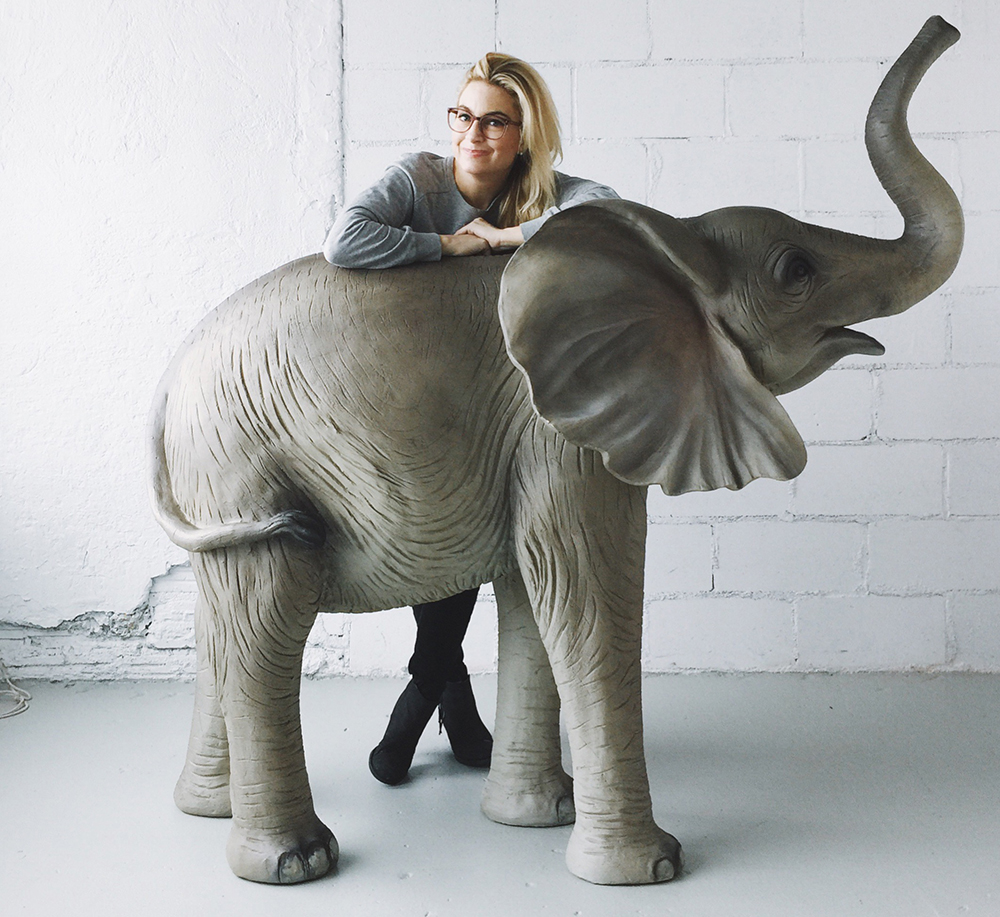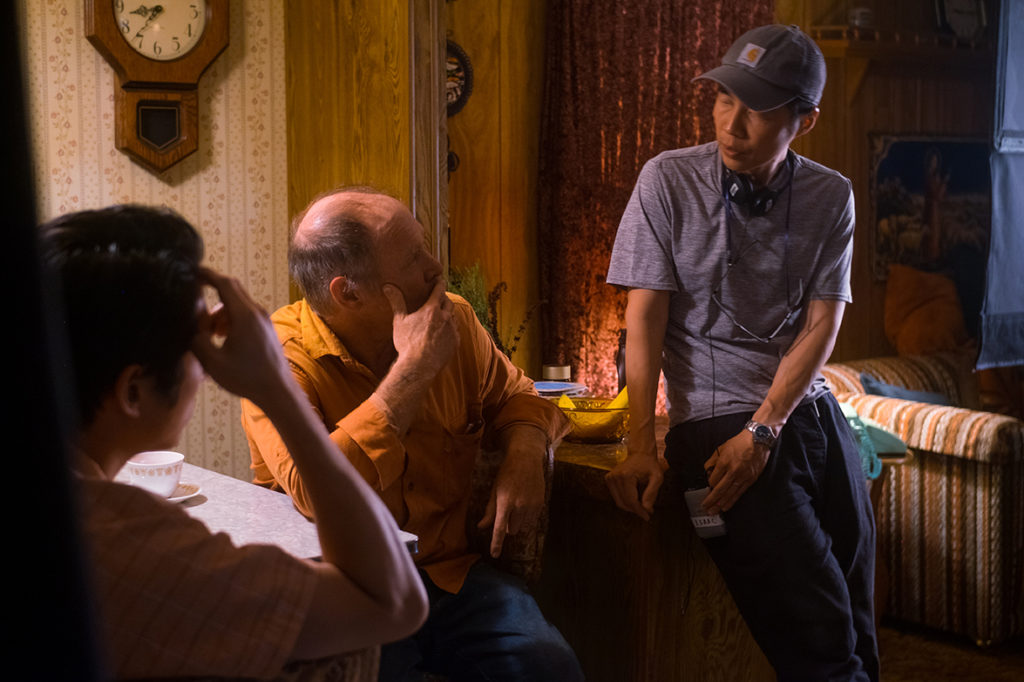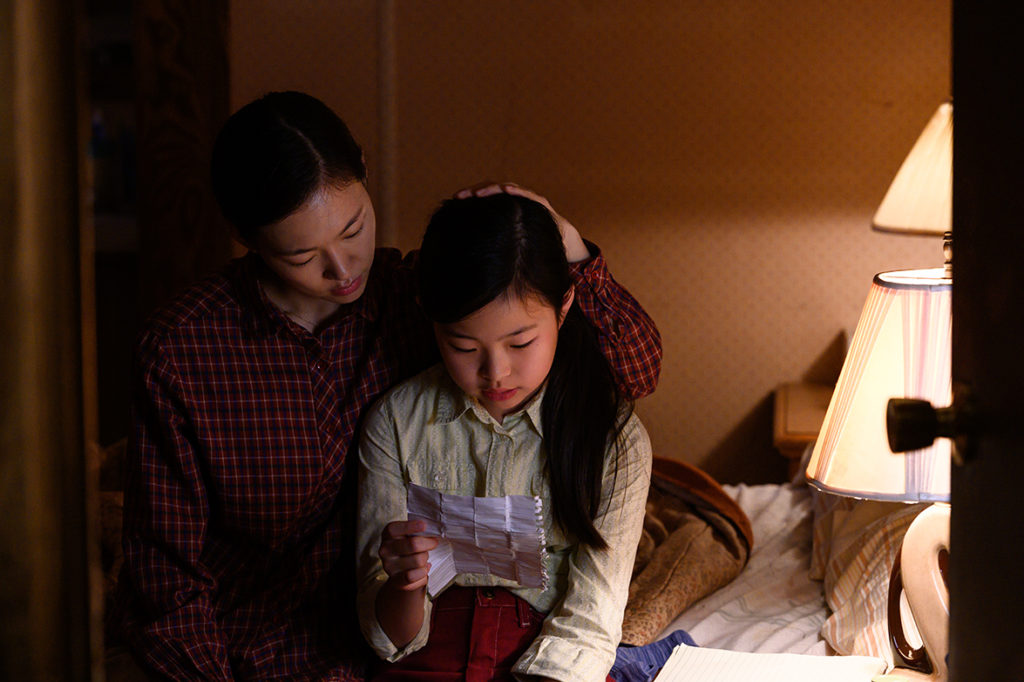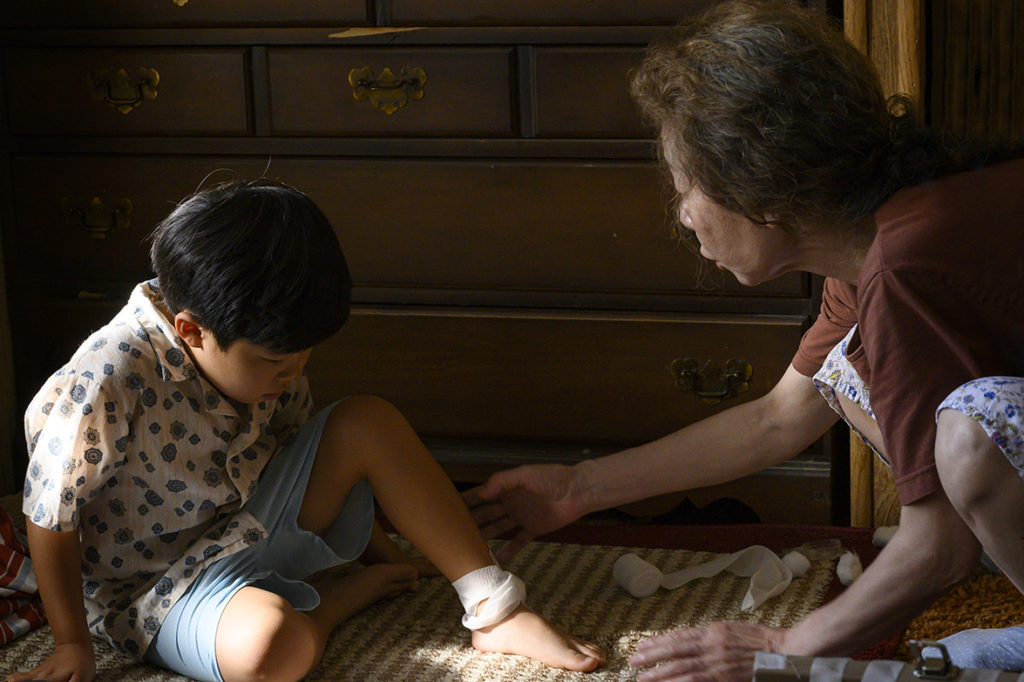

by Alex Joseph
In the Oscar-nominated film Minari, a family of working-class Korean immigrants moves to rural Arkansas. The props that convey the Yi family’s hardscrabble life were researched and sourced by Stacy Suvino, Visual Presentation and Exhibition Design ’08.
Working alongside a production designer and set decorator, Suvino, the film’s buyer and set dresser, scoured stores near the filming location in Tulsa, Oklahoma, in addition to Facebook Marketplace. Though Minari is set in 1983, she shopped for items from the ’70s because the Yi family couldn’t afford new decor. Each character had a color story; props support mood as well. The “haunted” dresser was found at River City Trading Post, a local antique shop. Suvino was convinced the Yi family needed a small oscillating electric fan, but it was hard to find. An owner of the Trading Post eventually offered one from their personal collection. Also difficult to procure was a classic ’70s couch with blocky lines and bold, rust-hued polyester fabric; the style is trending again, making prime specimens hard to come by. A store run by the H.O.W. Foundation, which helps men struggling with alcohol or drug addiction, proved to be a trove for props: “We hit that place every week,” Suvino says, happy the purchases benefited a good cause.

Suvino already had serious goals when she arrived as a student at FIT. “My first day in class, I said I wanted to work at Bergdorf Goodman. A year later, I had an internship there.” Legendary fashion director Linda Fargo and window dresser David Hoey supplemented the formal education Suvino was receiving from Associate Professor Anne Kong and other faculty members. Eventually, Suvino got hired full time in Bergdorf’s home department, though she still worked on windows, her favorite assignment: “That’s where the theater lies.”

After a couple of years, having reached her goals with Bergdorf’s, Suvino remembered a luxury retail store, Miss Jackson’s, from her childhood in Tulsa. She cold called and asked whether anyone was doing their displays; six months later, she had the job. Miss Jackson’s had a reputation as “a rich little old lady store” (and a smallish display budget), but they wanted to broaden their audience. Among other projects, Suvino recreated the office of actor and Tulsa native Will Rogers in Miss Jackson’s 10-foot-tall windows, a research-heavy assignment. “History is my niche,” Suvino says. The fashion industry started to notice her work, and Nike hired her for editorial ads. But the 2011 movie Water for Elephants changed her career ambitions. She cried to see how artfully the noted production designer Jack Fisk recreated the circus world of the 1930s, and soon after, she became determined to work in film.
Aspiring Hollywood set designers, take heed: Suvino’s story of breaking in exemplifies persistence, bravery, and making the most of a coincidence. It just so happened that the third season of HBO’s show True Detective was filming in Fayetteville, Arkansas, where Suvino’s parents live, and they knew the owners of the warehouse where the movie was being shot. Suvino’s dad sent her a photo of the front door of the warehouse, which had a sign with a cell phone number on it. “Call that number,” he told her. It turned out to be the show’s production manager. He told her they already had a crew. Undaunted, Suvino went to Fayetteville for the weekend and visited the site, résumé in hand. When a secretary called in the production designer to show him her CV, he said, “You’re the one with the dad!” She told him, “I really want to be here.” The set designer was crewed up for the duration, he said; however, the team admired her fortitude and encouraged her to call again.

Every week for four months, she did. Each time, they told her no. Suvino gave up and packed her car to head home. Thirty minutes outside Fayetteville, her phone rang. Someone was fired, and they wanted Suvino to step in. She worked on the show for over three months, staying late every night so she could learn how the production worked.
Today, Suvino lives in Atlanta, a new hub for film production, and she’s racking up credits: She’s worked on The Marvelous Mrs. Maisel and a new show for F/X, Reservation Dogs. She has an agent for commercials and editorial, but she hopes to work as a production designer for Steven Spielberg. In the meantime, she’s proud of her contributions to Minari. “It’s a version of the American dream,” she says, “and I think people are looking for hope right now.”